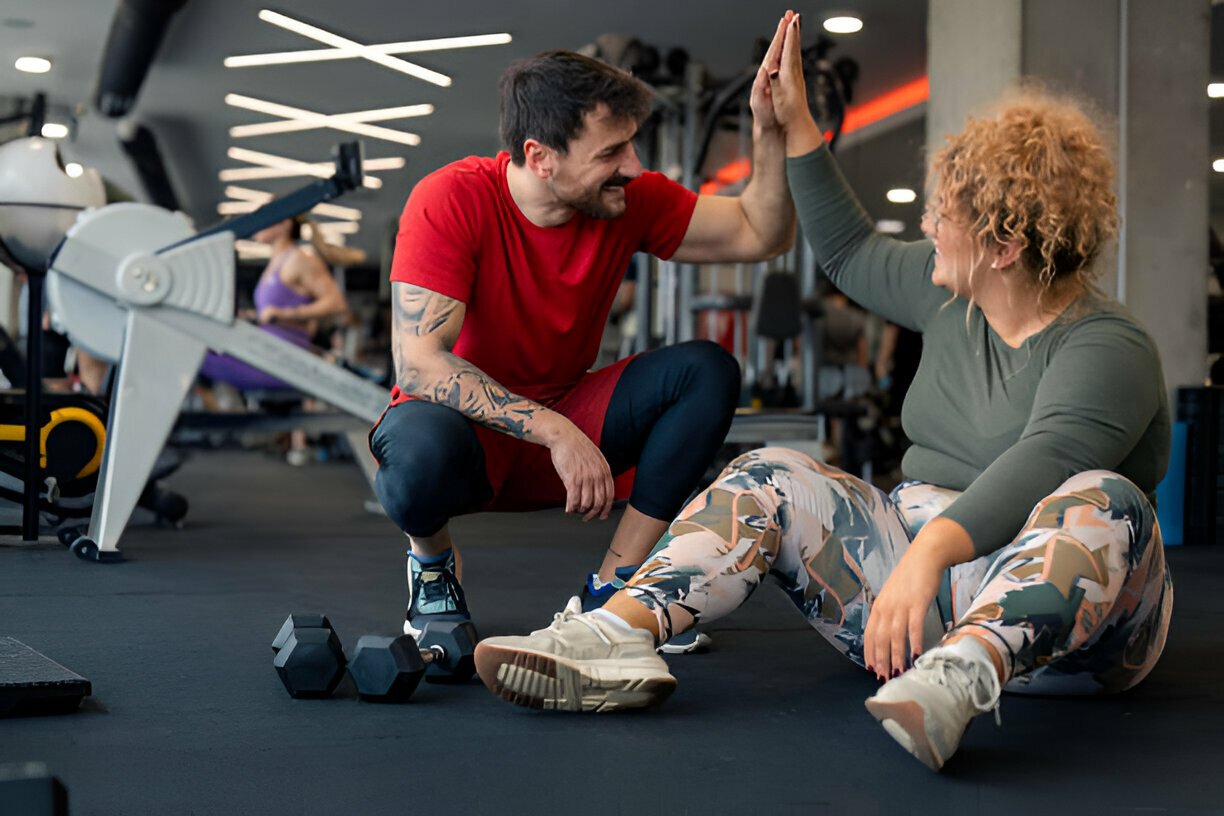Motivation is the key to fitness success. Personal trainers face challenges keeping clients engaged. Motivational interviewing (MI) offers a solution. It’s a client-centered approach that inspires change and builds self-belief. Whether focusing on fitness training, MI can help you create meaningful, lasting results. Let’s dive into how MI works and how it can transform your training sessions.
What Is Motivational Interviewing?
Motivational interviewing is a communication method that helps clients overcome ambivalence. It focuses on guiding clients to find their reasons for change. Instead of giving direct advice, trainers encourage clients to reflect on their goals and challenges.
This approach works because it’s collaborative. It avoids confrontation or judgment. Instead, clients feel supported and understood. This makes MI a powerful tool for personal trainers. It’s especially effective in promoting consistent habits, which are vital for success in workouts and online fitness programs.
Why Is MI Important for Personal Trainers?
Building Trust and Connection
Trust is the foundation of any trainer-client relationship. MI helps build this trust by fostering open communication. Clients feel heard and valued, strengthening their commitment to their fitness journey.
For online personal fitness trainers, trust is even more critical. Virtual sessions lack the in-person connection of traditional training. Using MI techniques, trainers can create a supportive and engaging virtual environment.
Promoting Self-Motivation
Clients often struggle with staying motivated. External pressure rarely works in the long run. MI empowers clients to find their reasons for change. This internal motivation leads to lasting results.
For example, a client might want to improve their strength with Workouts. Instead of pushing them to achieve specific milestones, MI helps them focus on why they started. This shift can reignite their passion and dedication.
Using MI in Workouts
Workouts are simple and effective. However, many clients lose motivation due to repetitive routines or slow progress. MI can address these challenges and keep clients engaged.
Exploring Client Goals
Begin by understanding why your client chose workouts. Are they looking for convenience? Do they want a cost-effective fitness plan? Use MI to reinforce these reasons when clients connect with their “why,” and stay committed.
For example, if clients aim to do ten pull-ups but struggle to reach three, MI can help them shift their mindset. Instead of feeling discouraged, guide them to celebrate progress, like improved form or endurance.
Overcoming Barriers
Every client faces obstacles. Whether it’s a busy schedule or low energy, MI can help them navigate challenges. Instead of offering solutions, ask open-ended questions.
For instance, if a client says, “I don’t have time to work out,” you might ask, “What changes could we make to fit short sessions into your day?” This approach encourages clients to take ownership of their fitness journey.
Enhancing Online Personal Training with MI
Online personal training is booming. But keeping clients engaged remotely isn’t easy. MI bridges the gap between virtual trainers and their clients.
Building Rapport Virtually
Start every online session with a check-in. Ask about your client’s week, struggles, and victories. Use reflective listening to show empathy. This builds rapport and makes clients feel valued.
For example, acknowledge their feelings if a client shares that they skipped bodyweight workouts due to stress. Say, “It sounds like you’ve had a tough week. What can we do to help you feel more balanced?”
Setting Realistic Goals
In online personal fitness training, small wins matter. Use MI to set achievable goals that keep clients motivated. Celebrate every milestone, no matter how small.
For instance, if clients complete their first week of Workouts, acknowledge their effort. Say, “You’ve shown great commitment this week. How can we build on this success?” This positive reinforcement keeps clients moving forward.
Communication Skills for MI
Effective communication is the heart of motivational interviewing. Personal trainers need to listen more than they talk. This approach uncovers a client’s true feelings and barriers.
Asking Open-Ended Questions
Open-ended questions encourage clients to share their thoughts and feelings. Instead of asking, “Did you do your workouts?” try, “How did your workouts go this week?” This invites deeper conversations.
For example, a client struggling with consistency might reveal underlying issues like stress or lack of time. Understanding these barriers allows trainers to offer tailored support.
Practicing Reflective Listening
Reflective listening shows clients that you understand them. Repeat or rephrase what they say to confirm their feelings.
For instance, if a client says, “I feel like I’m not making progress,” respond with, “It sounds like you’re frustrated with your results. Let’s figure out how we can measure your improvements differently.” This builds trust and encourages open communication.
Keeping Clients Consistent
Consistency is essential in fitness. Workouts and online training rely on regular effort. MI helps clients stay on track without feeling overwhelmed.
Regular Check-Ins
Frequent check-ins are vital. Use these sessions to celebrate progress and address challenges. If a client struggles, focus on solutions rather than setbacks.
For example, if a client misses a week of workouts, avoid saying, “You’re behind schedule.” Instead, ask, “What can we do to help you restart your routine?” This supportive language inspires action.
Encouraging Self-Reflection
Self-reflection is a key component of MI. Encourage clients to think about their progress and challenges. Ask questions like, “What changes have you noticed since starting this program?” This helps them see the value of their efforts.
Long-Term Benefits of Motivational Interviewing
Motivational interviewing creates lasting change. It goes beyond short-term fitness goals. MI helps clients develop habits and mindsets that stick.
Sustainable Fitness Practices
Workouts have become more than a routine. They become a sustainable part of the client’s lifestyle. Clients learn to adapt and stay consistent, even when facing obstacles.
Strengthening the Trainer-Client Bond
The trainer-client relationship becomes a partnership. Clients feel supported and empowered. This bond keeps them committed to their goals, whether in-person or online.
Conclusion
Motivational interviewing is a powerful tool for personal trainers. It builds trust, fosters self-motivation, and drives long-term success. Whether focusing on Workouts or online personal fitness training, MI helps clients stay committed and confident. You can transform your training sessions into meaningful experiences that inspire lasting change by using MI techniques.


